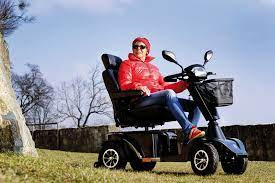How to Use a Portable Generator in the Right Way
You can use your portable generator to power your home when the power goes out.
A portable generator is often used to provide power in an emergency situation such as a hurricane or tornado. If there is an emergency, the portable generator can keep machines and lights powered up, especially at night.
But, if the generator is not used correctly, it can pose a danger to health. It is therefore important to ensure that portable generators are used in a safe manner.
Portable generators can pose 4 major hazards:
1. The generator's exhaust releases carbon monoxide CO.
2. Inadequate refueling is a common cause of fires.
3. Neglecting to connect or using power in an improper way to create other devices can lead to electrocution and shocks.
4. Vibration and noise dangers
Toxic gas carbon monoxide is one example. Because carbon dioxide is undetectable, many people die from carbon monoxide suffocation. Carbon dioxide, unlike other gases is colorless and odorless making it harder to detect.
Avoid carbon dioxide poisoning by keeping the portable generator in areas with adequate ventilation. It should not be placed in close quarters such as rooms, basements, garages or other enclosed spaces. It should not be placed near windows or doors. Open windows and doors will not prevent carbon dioxide buildup if the generator is used indoors. Even if the generator is being used outdoors, it can still be entered through windows and doors. Keep the person hydrated if they experience symptoms such as dizziness, nausea and headaches.
Generators work like engines in cars. Generators heat up when they run. Same as generators do. Generators are not like car engines. They can't be refueled while they are running, or shortly after they have been shut down. This is because generators remain hot for long periods of time. Allow the generator to cool down. If the temperature is safe, refuel it. It can also catch fire before you intend to refuel it. This is especially true if your gasoline containers are near or beside the generator. Generators generate heat, as was mentioned. If fuel containers are placed near the generator, the heat can affect the fuel's temperature. The fuel containers should not be placed near the generator, or anywhere it could absorb heat. Keep heat-generating devices far from fuel.
Generators can be thought of as your regular power source. Generators are less safe than other power sources like transformers and circuit breakers. They can also be more dangerous if you get electrocuted. Keep every connection clean and clear to prevent this. Avoid unsafe or unnecessary connections. Your generator should never be left in the rain. The generator should be kept as dry as possible. Cover the generator with a canopy in case of rain. Do not attempt to connect any device barefooted. Never use electric devices that are wet under any circumstances.
Portable generators vibrate and make noise. Keep it out of your work area as much as you can. Wear appropriate ear protection if you work near a portable generator.



Comments
Post a Comment